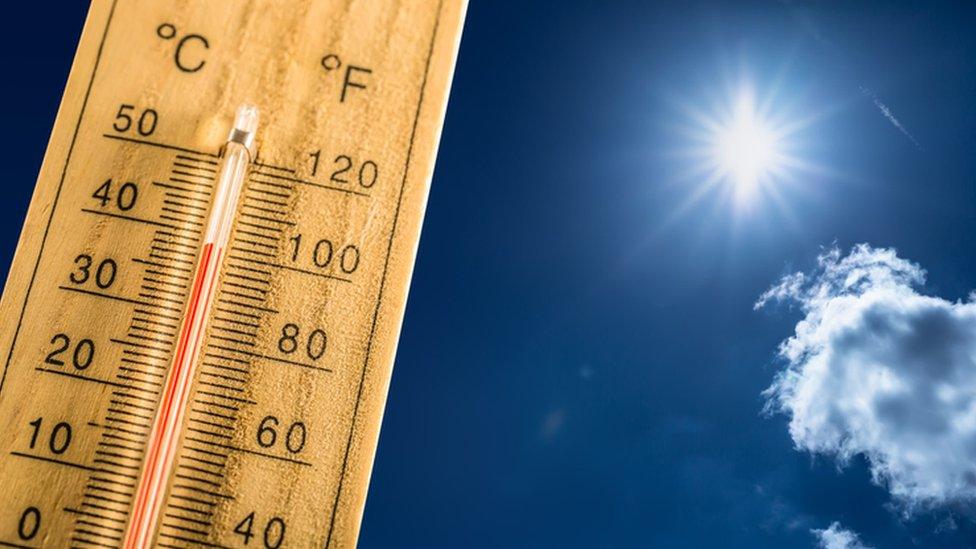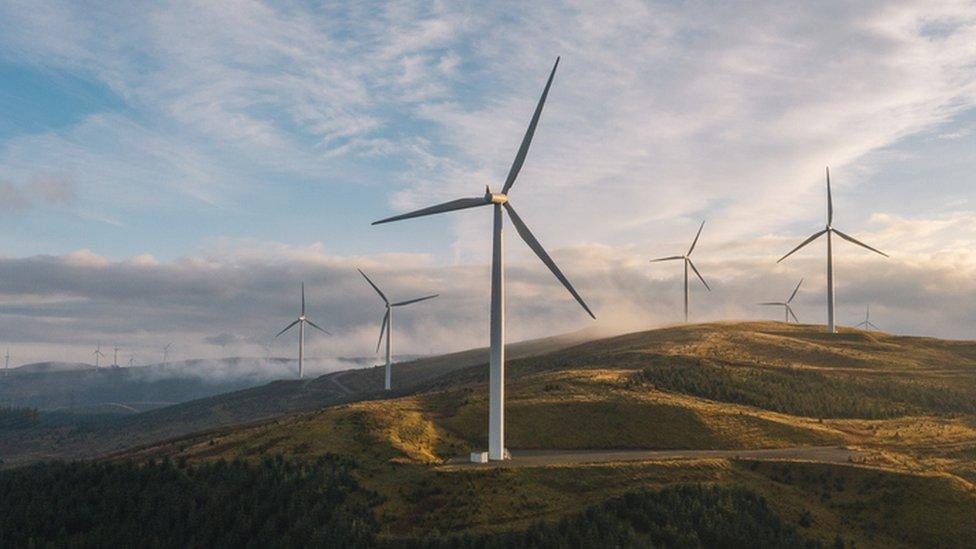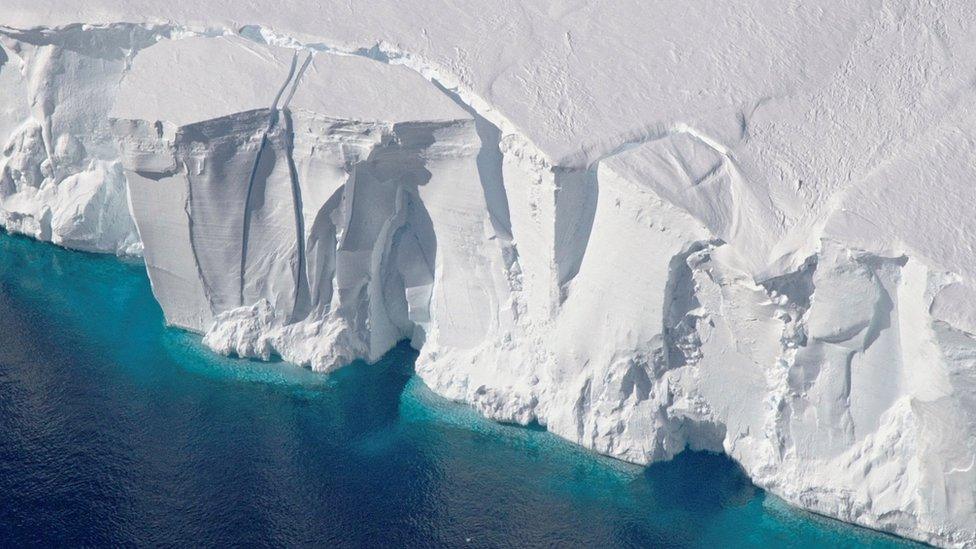Temperature records broken for nine months in a row
- Published
- comments

Since June 2023, record high world temperatures have been recorded for nine months in a row.
And last month was the world's warmest February in modern times, says the European Union's climate service.
Although naturally occurring weather has had an impact, environmental scientist, Professor Celeste Saulo, from the World Meteorological Organization says "heat-trapping greenhouse gases" are the "main culprit".

Australia experienced extreme heat in January. In Paraburdoo (pictured), in Western Australia, temperatures rose to 47.9C (118F)
According to the EU's Copernicus Climate Change Service, which studies the impact of climate change, greenhouse gases that trap heat and warm the planet made February 2024 about 1.77C warmer than "pre-industrial" times - before humans started burning large amounts of fossil fuels for heat and energy.
The recorded temperature for February breaks the previous record from 2016 by around 0.12C.
The temperature highs saw particularly severe heat in western Australia, southeast Asia, southern Africa and South America, which are all areas of the globe's southern hemisphere, where it's currently summer.
Global sea temperatures are also the highest on record and the levels of Antarctic sea ice are also lower than usual.

Extreme weather is likely to be more common because of climate change
El Niño: The weather phenomenon that creates warmer temperatures
There are signs that the run of global temperature records may finally come to an end in the months ahead.
That's because a weather phenomenon known as El Niño has also contributed to the months of warmer than average temperatures.
El Niño happens when water in the Eastern Pacific heats up more than normal, and creates unusually hot and stormy weather.
The 2023-24 El Niño has been one of the five strongest such events on record, the World Meteorological Organization announced on Tuesday, but it is gradually weakening.
What is being done to lower global temperatures?
COP28: What does the climate conference deal mean for you? (December 2023)
In December, a new deal to reduce the use of fossil fuels was agreed by all countries at the UN climate summit, COP28 in Dubai.
The deal means nations of the world have promised to move away from and gradually phase out the use of things like gas and coal.
However, there was no promise to reduce methane emissions - which is one of the most potent of greenhouse gases.

Renewable energy sources like wind power or solar power can create electricity without producing greenhouse gases
In 2015, a deal known as the Paris Agreement was made between 195 countries to reduce greenhouse gases and keep global temperature increases "well below" 2C - and to try to limit it to 1.5C.
Last year was the hottest on Earth since records began, with a 12-month average temperature now at 1.56C.
The Paris Agreement target was to keep temperatures at 1.5C over a 20-year average - so the promise set out by countries hasn't yet been broken - but experts say more needs to be done.
"We know what to do - stop burning fossil fuels and replace them with more sustainable, renewable sources of energy," says Dr Friederike Otto, senior lecturer in climate science at Imperial College London.
- Published10 January 2024

- Published23 January 2024
- Published13 December 2023

